Our Legal Advisory Committee (LAC) is made up of an exceptional mix of legal firms, in-house counsel and forensic accountants that work to understand the impact of new laws, regulations and judicial decisions. During the first quarter of 2023, we held three LAC Board meetings where three MCLE (legal continuing education) presentations and three case laws were presented. We urge all member companies, particularly those with general counsel on staff, to join the LAC to network and address pertinent construction industry issues.
If you are interested in joining or learning more about the LAC, contact Mary Alyssa Rancier, Senior Policy Coordinator, at rancierm@agc-ca-org.
APRIL
MCLE: “Recent California case developments addressing the enforcement of employee arbitration agreements of PAGA claims after the U.S. Supreme Court’s landmark 2022 Viking River decision” (Paul Simpson, SGIJ Law)
Paul Simpson, Simpson, Garrity, Innes & Jacuzzi, PC
——————————————————————————————–
Case Law: “Ramirez v. Avon Products, Inc. (Cal. Ct. App., Jan. 23, 2023, No. B313982)”
Ramirez v. Avon Products, Inc. (Cal. Ct. App., Jan. 23, 2023, No. B313982) – The Court of Appeal of California held that testimony from a PMQ’s investigation and review of corporate files occurring years prior to the PMQ’s employment with the corporation, while appropriate for discovery, is inadmissible evidence because it is based on hearsay, not personal knowledge. The implications of Avon for construction lawyers are significant. We routinely encounter cases that are filed just before the 10-year statute of repose and include events and documents from years earlier, Avon therefore is instructive insofar as it is critical to consider what decade-old evidence may be introduced in support of a summary judgment motion or later at trial.
While a reflexive interpretation of Avon might be that it is now impossible to get into evidence documents or corporate policies that do not have an adoptive witness with personal knowledge of the contents therein, careful lawyering can avoid such pitfalls. One strategy is to obtain expert review of company records. In Avon, the Court of Appeal comments that plaintiffs had utilized an expert to discuss Avon’s use of talcum powder, and that “Avon was free to do the same in response.” The court went on to explain that Evidence Code section 801 governs the testimony of an expert witness “who may provide an opinion based on hearsay which need not always be based on personal knowledge.”
Jacob Colvin, Associate Attorney, Smith Currie & Hancock LLP
Jacob Colvin advocates for facility owners, developers, design professionals, contractors and subcontractors in the Bay Area and throughout California. He handles a range of issues, including construction defects, mechanics liens, contract disputes, delay claims and cases that arise prior to substantial completion of the project. Jacob also reviews contracts, including indemnity obligations and agreements.
MAY
MCLE: “Faulty Work: Builder’s Risk Insurance Claim Landmines”
Will a GC have cover under a builder’s risk policy for faulty work on a project under construction? This presentation walked LAC members through the review framework, including assessing governing law, checking the precise policy wording, reviewing the insuring agreement and exclusions (with a focus on LEG exclusions), and analyzing policy conditions, including notice and suit limitations clauses.
Ashley Jordan, Partner, Reed Smith LLP
Ashley B. Jordan is a partner in Reed Smith’s Insurance Recovery Group, named 2021 Insurance Litigation Department of the Year by The American Lawyer. Ashley has recovered more than $200 million in insurance proceeds for Fortune 500 and middle market businesses. Her practice focuses on securing insurance payouts for general contractors and other stakeholders in the construction industry, through negotiation, litigation, and arbitration. She also assists clients draft and negotiate insurance requirements in their contracts and the terms of their insurance policies.
Case Law: “Madrigal v. Hyundai Motor Am.”
This matter involved a lemon-law lawsuit against Hyundai wherein Hyundai issued two CCP Section 998 offers (“998 offer(s)”) that were both rejected by the Plaintiffs (husband and wife vehicle owners). The second and operative 998 offer was for roughly $55,000.00 among other non-monetary terms. On the first scheduled day of trial, while the parties reviewed motions in limine, the judge urged the parties to re-engage in settlement negotiations. Between breaking for recess and the swearing in of the jury, the parties agreed to settlement terms in place and after the recess and swearing in of the jury, had the judge read the terms of the settlement on the record pursuant to CCP Section 664.6. The settlement was for $39,000.00 and included other non-monetary terms. The question was whether the Plaintiffs failed to obtain a more favorable judgment triggering the post-998 offer cost-shifting penalty.
The court agreed with Hyundai that the terms of the Settlement under 664.6 constituted a “judgment” as outlined in section 998(c). Section 998 is silent as to the timing or form of judgment, especially as it pertains to resolution by settlement. As such, section 998 does not exclude cases that end in settlement. Furthermore, section 998 does not define the term “judgment.” Courts have construed “judgment” in a broad sense consistent with 998’s purpose to encourage resolution via settlement. Quoting DeSaulles v. Community Hospital of Monterey Peninsula (2016) 62 Cal.4th 1140, 1155, this Court stated, “as between the parties thereto and for purposes of enforcement of settlement agreements, a compromise agreement contemplating payment by defendant and dismissal of the action by plaintiff is the legal equivalent of a judgment in plaintiff’s favor.” Therefore, “the term ‘judgment’ in section 998 is meant to include its functional equivalents, such as dismissal of a case with prejudice.” The Court found that the agreement had (1) resulted in a final determination of the parties’ rights within the meaning of section 577 and (2) “the parties’ use of section 664.6 as the vehicle to memorialize their agreement supports the proposition that the settlement was intended to effect a final judgment.”
The third appellate district held that section 998’s cost-shifting penalty provisions applied given Hyundai’s second (and operative) 998 offer being rejected, and this case being resolved via settlement agreement. Hyundai shall recover its post-998 offer costs on appeal.
Justin Gelzayd, Associate Attorney, SMTD Law
Justin Gelzayd focuses his practice on construction and surety litigation. Mr. Gelzayd’s professional experience includes litigating cases involving construction defects, contract and bid disputes, as well as forming corporations and LLCs.
Mr. Gelzayd is licensed to practice law in California and Florida. Before going to law school, Mr. Gelzayd earned an accounting degree from the University of Arizona, then continued his education to earn his J.D. and LL.M. from the University of Miami School of Law in 2016.
JUNE
MCLE: “Life in the Fast Lane – Rapidly Changing Technology and the Impact on Construction Claims”
While the construction industry has traditionally been slow to adapt and change, the last several years have seen a rapid expansion of the adoption of new technologies both in the construction and administration of construction projects. This presentation will review some of these new trends and discuss their application and use as well as evaluate the risks and risk management approaches needed to anticipate, mitigate, and resolve claims in this new and rapidly changing era of construction-tech. The presentation covers issues such as modular construction, CLT materials, and 3-D printing, as well as the pace of litigation and large loss claims. This presentation will discuss the challenges facing the construction community and discuss how invention and creativity may be causing more complexity in construction disputes as well as changes in trends in construction claims. Finally, this presentation will touch on the increasing pace of litigation and considerations in harnessing different ADR models to move disputes toward resolution.
Brenda Radmacher, Partner, Akerman LLP
Brenda Radmacher is a partner at Akerman LLP, where she is the leader of the firm’s Construction Industry Group on the West Coast. Brenda handles all types of matters in the construction industry surrounding vertical construction as well as infrastructure projects across the western region, and around the world, providing pragmatic counsel on contracting strategies and drafting. With over 25 years of experience working with construction contractors, construction managers, design professionals, developers, and owners, Brenda’s practice emphasizes resolving complex construction disputes through negotiation, mediation, and when necessary, arbitration and litigation on projects in California, nationwide, and internationally.
Case Law: “Davis v. Fresno Unified School District (2023), 14 Cal.5th 671.” ”
After several years of litigation, the California Supreme Court has issued a ruling on the applicability of validation statutes to independently financed lease-leaseback arrangements in Davis v. Fresno Unified School District.
In an opinion that should be a warning to California public entities and public-works contractors, the California Supreme Court upheld the Court of Appeal’s decision holding that a validation cause of action cannot be brought to validate a school district’s lease-leaseback arrangement when the arrangement was not inextricably tied to the public entity’s indebtedness because it did not fall within the definition of “contracts” under Cal. Gov. Code section 53511. Since the lease-leaseback contract in this case could not be validated under the validation statutes, this exposes the contractor here to disgorgement of all amounts paid by the public entity to the contractor—just under $40,000,000.
Thus, public-works contractors should be wary of lease-leaseback contracts and seek legal guidance at the bid stage to ensure that the lease-leaseback regime is authorized by statute and/or capable of validation. Prudent contractors should require public entities to issue public bonds for the specific project and consider pursuing validation of the contract. If the contract is not validated or clearly authorized by statute, the contractor faces serious risk of a disgorgement action or a reverse-validation action by disgruntled taxpayers or losing-contractor bidders.
Public entities seeking to complete projects under a lease-leaseback arrangement should be aware that an independently financed lease-leaseback contract cannot be validated under the validation statutes and thus should issue project specific bonds. If public entities refuse to do this, public entities will likely face difficulty acquiring bids for lease-leaseback projects in the future.
Nathan Chow, Smith Currie & Hancock LLP
Nathan Chow is a rising 3L at Santa Clara University School of Law and current summer associate at Smith, Currie & Hancock LLP. He has published an article on disgorgement issues in the Santa Clara Business Chronicle and wishes to practice construction law. He also serves as the Senior Research Editor for the Santa Clara Law Review and as an associate editor for the Santa Clara High-Tech Law Journal.


















































